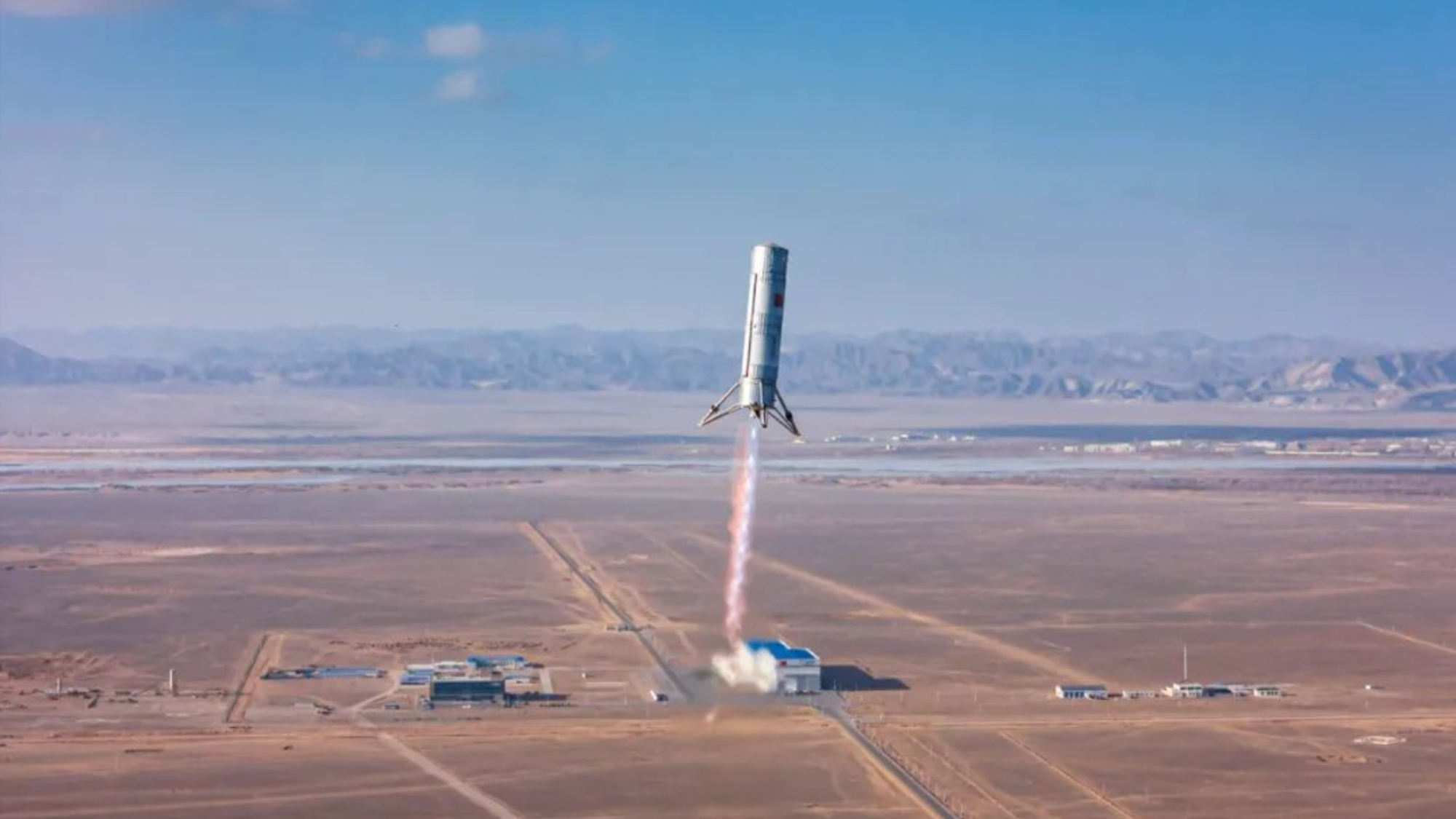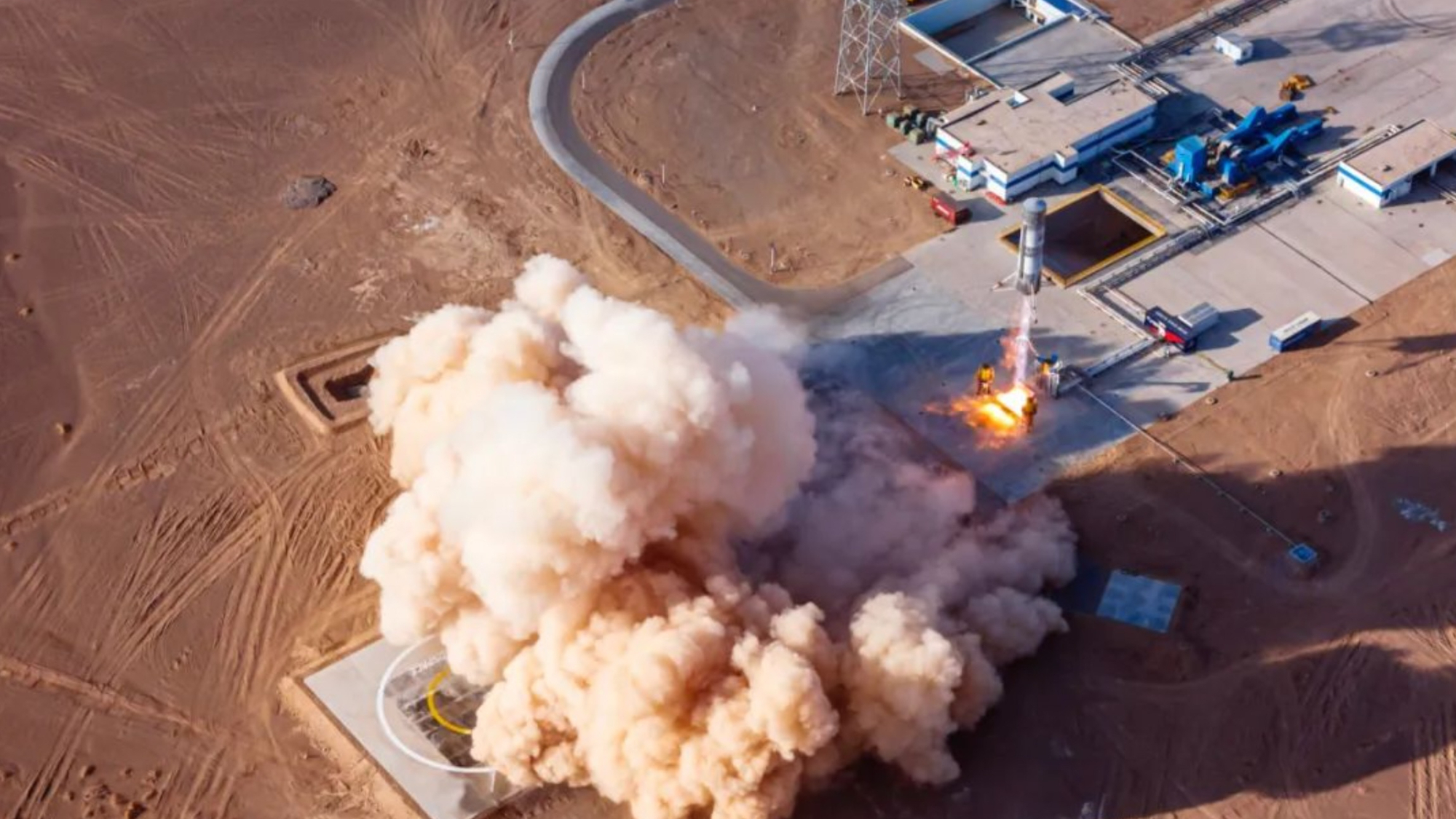The Chinese company Landspace just notched a big milestone in its quest to develop a reusable rocket.
The Beijing-based startup launched and landed a test version of its Zhuque-3 rocket at the Jiuquan Satellite Launch Center in Inner Mongolia on Jan. 19.
The vehicle soared about 1,150 feet (350 meters) into the sky during the roughly 60-second flight, then came back down for a pinpoint landing within 7.9 feet (2.4 meters) of its target, according to Landspace, which declared the test mission "a complete success."
Related: Chinese startup Landspace poised to begin reusable rocket landing tests

Zhuque-3 is a two-stage, stainless-steel rocket whose first stage will be reusable, like that of SpaceX's workhorse Falcon 9.
The Zhuque-3, which Landspace hopes to start flying in 2025, will stand about 250 feet (75 meters) tall and be capable of carrying up to 40,350 pounds (18,300 kilograms) to low Earth orbit (LEO) in reusable mode, according to SpaceNews.
The Falcon 9, for comparison, can haul about 50,265 pounds (22,800 kg) to LEO, according to its specifications page.
Get the Space.com Newsletter
Breaking space news, the latest updates on rocket launches, skywatching events and more!

Landspace — which also flies the expendable, and currently operational, Zhuque-2 rocket — isn't the only Chinese outfit working to develop a reusable launch vehicle, as SpaceNews notes.
Others include the companies iSpace, Galactic Energy and Orienspace, as well as the state-owned China Aerospace Science and Technology Corp., whose many projects include a fully reusable version of its future Long March 9 heavy lifter.
Join our Space Forums to keep talking space on the latest missions, night sky and more! And if you have a news tip, correction or comment, let us know at: community@space.com.

Michael Wall is a Senior Space Writer with Space.com and joined the team in 2010. He primarily covers exoplanets, spaceflight and military space, but has been known to dabble in the space art beat. His book about the search for alien life, "Out There," was published on Nov. 13, 2018. Before becoming a science writer, Michael worked as a herpetologist and wildlife biologist. He has a Ph.D. in evolutionary biology from the University of Sydney, Australia, a bachelor's degree from the University of Arizona, and a graduate certificate in science writing from the University of California, Santa Cruz. To find out what his latest project is, you can follow Michael on Twitter.









